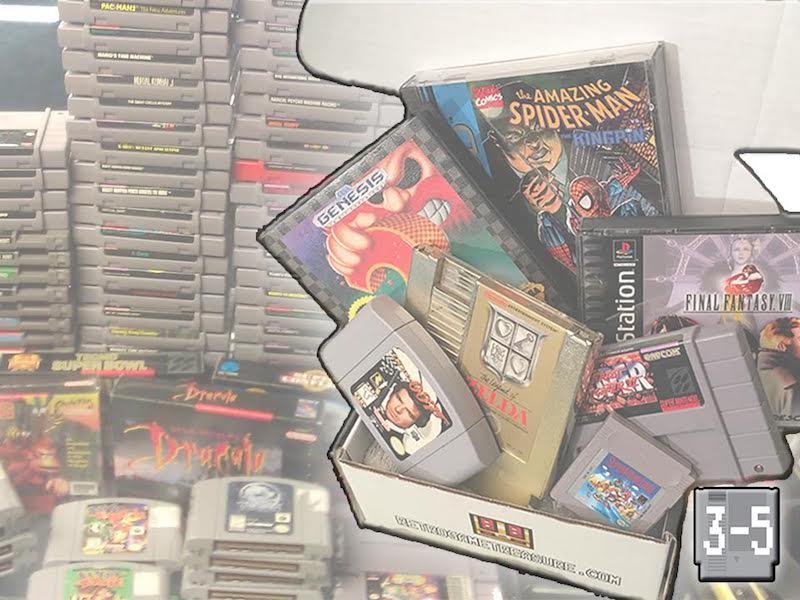وبلاگ
Is Downloading Retro Computer Game ROMs Ever Before Legal?
To learn about the legitimacy of emulators and ROMs, we spoke to Derek Bambauer, who is a Professor of Regulation at the University of Arizona, where he educates net regulation and intellectual property. Regrettably, we discovered that no conclusive solution genuinely exists, given that these disagreements have yet to be tested in court. However we can at least bust some myths that are drifting around around.
For clarity, we conducted this meeting in 2017; nevertheless, there have been no spots cases that would have altered the lawful landscape since that time. In very early 2025, Nintendo closed down Yuzu, a Nintendo Change emulator, yet in its filings it never ever asserted that emulation is illegal and they cleared up out of court.
Emulators Are Probably Lawful
So allow start with the easy stuff. Regardless of what you might have heard, there not a great deal of concern as to whether emulators are lawful; they probably are.Read here free roms At our site Even Apple has actually softened on emulators by ultimately permitting them right into the Application Shop. An emulator is simply a piece of software program suggested to imitate a video game system- but most put on t contain any type of exclusive code. (There are exceptions, naturally, such as the BIOS files that are called for by certain emulators to play video games.)
But emulators aren t beneficial without game data- or ROMs- and ROMs are almost always an unauthorized copy of a video game that secured by copyright. In the USA, copyright protects works for 75 years, meaning no significant console titles will be in the general public domain for years.
Yet also ROMs exist in a little a gray area, according to Bambauer.
The Feasible Exemption for ROMs: Fair Usage
To start: downloading a duplicate of a game you put on t own is not legal. It no different from downloading a film or TV reveal that you don t very own.#39;It piracy. Let presume I have an old Super Nintendo, and I love Super Mario World, so I download and install a ROM and play it, said Bambauer.
That an infraction of copyright. That fairly apparent, right? And it essentially lines up with the language pertaining to ROMs on Nintendo website, where the firm suggests that downloading any kind of ROM, whether you own the video game or not, is unlawful.
But exists a lawful protection? Potentially, if you already own a Super Mario World cartridge. Then, according to Bambauer, you may be covered by fair usage.
Fair use is an unclear standard, not a guideline, Bambauer discussed. He says he can think of a couple of possible defensible scenarios. If I own a duplicate of Super Mario World, I can play it whenever I desire, he keeps in mind, but what I d really like to do is play it on my phone or my laptop. In this situation, downloading a ROM could be legitimately defensible.
You re not giving the video game to any person else, you re just playing a game you already have on your phone, claimed Bambauer. The argument would certainly exist no market damage below; that it not alternativing to an acquisition.
Currently, this isn t black and white; just a potential lawful argument. And Bambauer is quick to admit it not an ideal one. This is by no means a slam dunk argument, claimed Bambauer, But it by no suggests a silly one. After all, Nintendo might argue that by emulating the video game on your phone, rather than acquiring their official port of a video game, they re shedding cash.
Though, while there is no criterion certain to gaming, there remains in other markets. In the music market, every person approves that space moving is legal, Bambauer notes. You can see where this gets complicated.
Suppose You Slit Your Own ROMs?
Tim Brookes/ How-To Geek
A common debate online is that extracting a ROM from a cartridge you have is completely lawful, yet downloading and install ROMs from the internet is a criminal offense. Instruments like the Retrode allow any person essence a Super Nintendo or Sega Genesis game over USB, and mention their legitimacy over downloads as a vital selling point. After all, ripping a CD you own is extensively thought about lawful, at least in the United States.
So, is tearing a ROM you own any kind of different than downloading one? Probably not, states Bambauer: In both situations what you re doing is developing an added duplicate.
Currently, Bambauer can envision constructing a debate regarding how one is different than the other, and he admits the optics are various. Yet he doesn t think both circumstances are all that unique, legally talking. I believe if the debate is, if I were a knowledgeable designer, I might extract this and have a duplicate, stated Bambauer. If we presume, for a moment, that if I did that it would certainly be reasonable usage, then it shouldn t be different. Sharing ROMs Is Unambiguously Unlawful
This fair usage argument is possibly really large reaching, yet there are limits. The trouble comes when it no longer just me having a copy, it offering other individuals a copy, claimed Bambauer.
Think about the show business. The RIAA and MPAA have discovered more luck going after the websites and individuals sharing music, instead of the downloaders. For ROMs it largely functions similarly, which is why websites that share games are so frequently shut down.
As soon as you re distributing a ROM, a lot of the people downloading it most likely wear t have legal copies of the video game, claimed Bambauer. Then it is market damage, due to the fact that Nintendo should have the ability to offer to those individuals.
As a result of this, it may be a great idea, even if you have a game, to avoid downloading ROMs from peer-to-peer networks, where you re sharing a copy of the game as you download it.
Suppose a Video game Isn t Presently on the Market?
Many people argue online that if a game isn t presently available on the marketplace, downloading and install a ROM is legal. Besides: there can t be market damage if a game is not presently to buy in electronic kind. That debate could not be airtight, according to Bambauer.
On the one hand, there no quantity of money that will let me get a legal duplicate of this game, said Bambauer. On the other side of the argument, there what Disney does. Disney traditional technique was to place timeless films in the safe for extensive periods. Rather than leaving movies regularly on the marketplace, they periodically re-released them, which accumulated demand and enhanced sales when that launch in fact came.
Computer game firms could suggest they re doing the same point with currently unreleased games, which ROMs are driving down the potential market value. It a close instance, says Bambauer, and hasn t been evaluated a great deal. Yet they could make that disagreement.
At the same time, he notes, a game not currently being on the marketplace could potentially be a helpful part of a protection, particularly if you re downloading and install a game you currently have. I couldn t buy a duplicate anyway, and I already possess a copy, claimed Bambauer, again hypothetically. So it type of like having a CD, and tearing it on my very own.
Every one of This Is Primarily Theoretical
You re possibly beginning to see a pattern here. ROMs are such a gray area because there are possible legal defenses on both sides- but no one genuinely checked these debates before. Bambauer couldn t indicate any case regulation particularly about video game ROMs, and was primarily simply extrapolating from various other locations of Internet copyright legislation.
If something is clear, though, it this: if you don t possess a legal copy of a video game, you don t have any right to download it (yes, even if you erase it after 1 day, or other such rubbish).



